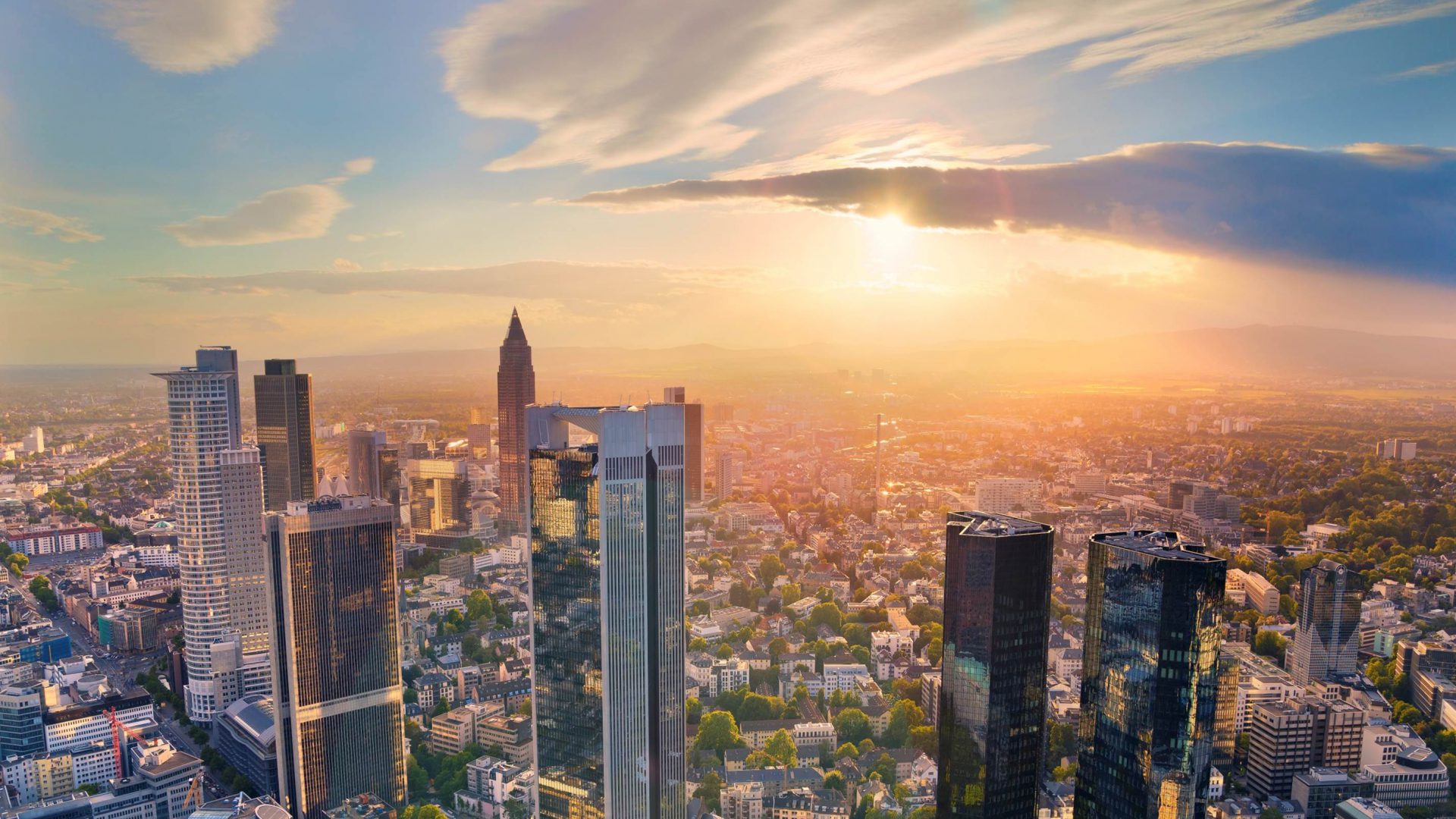Metaverse – online brand experience at a whole new level. What’s in it for our automotive customers?
M. Hartung, A. Kaiser, V. Kaiser, T. Schöne, E. Yakushkina

Regarding new internet experiences, the metaverse is an omni present topic, but what is it and what is it capable of? The metaverse is often regarded as a digital space, which is enabled by digital technologies such as virtual reality, artificial intelligence and augmented reality that allows people to interact with each other in a virtual environment – transforming the way of living. For more in-depth insights about the technology, we created an HPP internal metaverse think tank in early 2022.
Our focus industries also start capturing opportunities of the metaverse. For automotive OEMs and retail partners, metaverse brings the brand experience at a new, immersive level and complements the omnichannel landscape. For telecommunication companies, the “engine room” of metaverse – high speed internet infrastructure and data management – creates opportunities for growth.
„We strongly believe that there are several windows of opportunities for our customers
and their target groups to explore and enter the metaverse now and in the future.“
– Annika Kaiser, HPP –
To sharpen our understanding of the metaverse and its potential for our customers, HPP teamed up with an expert in virtual worlds. Ida Kymmer, Strategic Business Development Manager at Journee – The Metaverse Company, gave us some insights on the evolution of virtual worlds and their impact on existing brands and their customers. For her, the metaverse can be defined as a new iteration of the internet that can be discovered virtually and stepped into. There is not one specific metaverse – the metaverse can be specified as “the persistent platform of consistent, interconnected virtual worlds”. Something that bridges real and virtual spaces, where we go in and out of, enhancing our physical life. The metaverse should not be seen as a replacement for physical life, it is something that is supporting and giving inspiration to make physical life a bit more effortless.
„Creating the metaverse means creating the most beautiful internet.“
– Ida Kymmer, Journee –
Acceptance is crucial
With the convergence of physical and digital worlds, the metaverses development mainly depends on two factors: the acceptance of companies and consumers as well as on technological progress.
Acceptance by companies, who want to participate in the novelty of a technology and feel a sense of social belonging that results from its usage, is essential. Today, many brands start to create metaverse experiences with the goal of attracting a futuristic thinking audience. Soon there will be economic opportunities resulting from the use of the technology. In the long run, HPP predicts that the metaverse becomes an economic necessity for consumers as well as companies. What is now still an optional enhancement will transform into a necessity in the future, similar to the development of the world wide web in past decades. Of course, the general adaptation and the timespan of readiness and speed of acceptance depend on cultural openness to innovation as well as technological infrastructure development.
„We cannot say, what the metaverse will be like in a couple of years, because many people
and companies create and develop it as we speak, but it is a great opportunity to be part in
this process.“
– Ida Kymmer, Journee –

Opportunities for the automotive industry
In the last decade, we accompanied our automotive customers in managing the shift from one sales channel over omni channel to 24/7 accessibility, where customers have the opportunity to connect anytime from anywhere. The customer journey becomes more complex and customized every year and special “wow moments” have become a must. Many possible extensions of the current online experience in terms of virtual showrooms, brand events, industrial fairs and consulting already exist, and even complete digital twins of physical retail stores have been built. In this context we see the metaverse as the next level for offering even more individual, immersive experiences. Regarding automotive retail, some OEMs have already started to build retail spaces in the metaverse, where customers can look at cars, interact with salespeople and even go for test drives. Well-known examples are BMW Joytopia, which was developed in corporation with Journee, Mercedes-Benz virtual showrooms in EMEA and Hyundai Mobility Adventure.
„Along the entire customer journey there are value-adding metaverse use cases. Virtual
collection items for avatars could be an easy starter. OEMs could also mirror their offline
retail format landscappes, offering the whole experience brand worlds or just spaces to spend
time and get together – capturing leads in the very beginning of the sales channel. Bridging
waiting time is quite difficult in an offline world, but in an online space you can offer your
customer a fully customized experience, showing his individual real-time vehicle production
journey or repair work of the virtual twin of the car.“
– Elena Yakushkina, HPP –
With the metaverse the entire online retail process could become closer to a real world experience for customers, in comparison to the regular online car shopping on websites. Of course, there are limits to it, for a customer will not miss a real test drive before buying an exclusive luxury car, feeling the materials, and having the full acceleration experience. Nevertheless, the metaverse builds an enhanced e-Commerce experience that offers emotional and realistic animations. The entire decision-making process can thus be supported by exact measures and high-quality renderings. For companies, this added value is a differentiator placing the brand in a contemporary, futuristic, digital position. In the short run, the metaverse allows automotive manufacturers to create an emotional value for their customers and strengthen the connection to the brand. In the long run, the entire web 2.0 online presence is expected to shift into the metaverse.
What do customers need to get in there?
„It [the metaverse] is a new iteration of internet and everybody’s going to need to get in
there.“
– Ida Kymmer, Journee –
What do your customers need to experience your brand in a whole new world? The answer is quite simple: not much. Contrary to expectations, there are already solutions available to create an easily accessible metaverse experience. For example, Journee provides solutions for entering simply via smartphone, tablet or computer with internet access. There is only one link needed to access the individual metaverse space from all existing internet channels. To create an open experience available to anyone, anywhere, without having to install any additional software or hardware is important for acceptance and customer convenience.
Is there a place to be?
Since the metaverse is at an early stage in its development, Ida states that there is currently no “place to be”. If companies want to get into the metaverse, they should focus on what is best for their customers and experiment with this knowledge, rather than rushing into the transformation without knowing about the added value for their customers.
What are the risks?
As any new technological innovation, the metaverse offers many opportunities but also risks. Since the metaverse technology is still in its early stage of development, data security plays an important role. Companies need to make sure that they maintain customers security regarding their digital identities, including personal data and assets, to keep their trust. The whole topic of customer intimacy becomes even more relevant in this fast-developing digital world. Furthermore, investing into metaverse, especially as an early adopter, involves high costs. The integration of the metaverse technology into existing processes and structures equally means a great deal of work and money. Therefore, we recommend to explore the opportunities of the metaverse step by step, starting with small “experience nuggets”, learning with and from your customers and adapting the metaverse offerings according to customer responses. Also, it is essential to create a virtual brand perception out of a pure metaverse experience with a clear link to the familiar brand experience. Therefore, it is crucial to focus on customer preferences, relevant touchpoints, and recognizable brand characteristics.
„To secure usability and positive customer experience, interlocking processes and
seamless backend integration are key. OEMs and automotive retail put a lot of effort into
seamless data management, and with the metaverse as an additional channel it becomes
even more important.“
– Annika Kaiser, HPP –
Our recommendation
Companies should enter the metaverse step by step, collect knowledge of how customers perceive the brand in this new surrounding. It is important to not only build a metaverse space for the customers but accompany them during their experiences and collect immediate feedback. A first virtual kickoff event for a special occasion, a presentation of a new car model or a virtual test drive on a famous racing court could be a good start to make people want more. In particular, the metaverse creates the opportunity for OEMs to grant their customers a look into the future, by being able to show them upcoming innovations e. g. prototypes of cars that are in the making.
Integrating this metaverse experience into the current multichannel landscape and existing internal structures is essential. Interfaces in between systems ensuring a holistic and easy journey from first awareness to ordering a car to after sales processes can make the difference.
Outlook
Currently, a company space in the metaverse still constitutes an “object of curiosity”. In the medium and long term, we expect that the metaverse will concern all industries, due to its growing importance, just as the internet did in the past. HPP would be happy to accompany your business on this road and enhance your customer journey to a new virtual level with a seamless and unique customer experience, perfectly integrated into existing structures.
Ansprechpartner

Annika Kaiser
Frau Kaiser ist Senior Consultant bei HPP und hat seit dem Beginn ihrer Karriere unter anderem die Automobilindustrie fachkundig betreut. Hier war die Weiterentwicklung des Retails vom heutigen Stand zu einem zukunftsfähigen und innovativen Zielbild entlang der Customer Journey sowie der Ausbau des Direktvertriebs eine ihrer Hauptaufgaben.
Frau Kaiser hat an der Hochschule Darmstadt und der Universität Bayreuth studiert. Ihre Freizeit verbringt sie auf der Tanzfläche oder in guter Gesellschaft mit Familie und Freunden.
Titelbild: Billion Photos/shutterstock.com (600236561)

